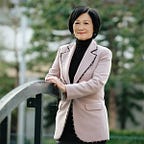Why are Hong Kong’s “pan democrats” so obsessed with the “separation of powers”?
The row over the “separation of powers” continues to simmer in Hong Kong’s political circles. Last week, in Hong Kong’s Legislative Council, during the debate on a bill designed to alleviate the judiciary’s workload, a legislator from the “pan democratic” camp threw into a tantrum over the government’s position that the “separation of powers” does not exist in Hong Kong and runs counter to the constitutional design in the Basic Law, Hong Kong’s mini-constitution. Why are they so exercised about this?
Well, it is not just Hong Kong’s pan dems who are agitating over the government’s rejection of their claim. Hong Kong Government’s rejection of the “separation of powers” has made its way into US State Department’s recent report on foreign persons allegedly involved in the “erosion” of China’s obligations toward Hong Kong. The editing of textbooks to remove references to civil disobedience and separation of powers was cited as one of the reasons for raising the concern of the Statement Department over developments in Hong Kong.
It is not a question of whether “civil disobedience” and “separation of powers” should be taught in secondary schools, but whether these subjects are properly taught. If teachers see value in teaching “civil disobedience” in secondary schools, then it should be taught in an objective and balanced way, instead o glorifying “civil disobedience” as a noble calling for youngsters, irrespective of consequences. If the teachers themselves have not read Henry Thoreau or John Rawls on civil disobedience, they should, at the very least, draw attention to comments to “civil disobedience” in recent court judgments. The learned judge pointed out that according to Lord Hoffman, one of our overseas non-permanent judges of the Court of Final Appeal, “civil disobedience” must be non-violent in nature, and the perpetrators must accept punishment to expose the injustice of existing laws. Most of the instigators of “civil disobedience” in Hong Kong during the “Occupy Central” movement in the fall of 2014 appealed against their conviction.
As for separation of powers, after listening to the pan dems’ ranting in last week’s debate in Hong Kong’s Legislative Council, I finally realized why the pan dems are so adamant about separation of powers, and why our youngsters have been brainwashed on this for 30 years. The pan dems reminded me that “separation of powers” featured in literature on Hong Kong’s political system in 1997. That, of course, was the doing of Chris Patten. Since his arrival as the last governor in 1992, Patten had been obsessed with a last-ditch effort to re-make Hong Kong in his own idiosyncratic image. Yes, in his own image only; not even in Westminster’s image, as we well know the “separation of powers” does not exist in the English system.
So the pan dems have been preaching the gospel according to Chris Patten, a fake faith instilled by an irresponsible last British ruler to disorient Hong Kong people and to throw spanners into the works in the final leg of our preparations for reunification with China. A skilled politician accustomed to deceiving the people, Patten pulled off his trick with considerable success, so that the idea of “separation of powers” is implanted in the minds of many brought up in the British system. But that does not accord with the facts. As I have said time and again, under the classic, colonial system, the governor was the President of the Legislative Council, until 1993. With help from the appointed majority, the colonial administration in Hong Kong was always able to have its way. Free of political meddling, the colonial administration was able to do many things for the people of Hong Kong. Looking back, I thank Lord MacLehose for his 10-year public housing programme, for the development of new towns, for the support for cultural activities and the construction of cultural centres in our new towns, and, above all, for governing Hong Kong with a light touch, following Confucian values. Just Love the people as your own; encourage them to privilege the integrity of the family, education and stability. Thanks to such precepts, we enjoyed decades of harmony, strong community and remarkable growth. The Patten doctrine left us with ideological conflict, political in-flighting and erosion of good governance.
On handing Hong Kong back to China, Britain knew that as its power declined, it would not have sufficient prowess to lean on China to follow its agenda. So it looked to America, which gladly jumped into the fray. Criticisms of the Hong Kong Government’s textbook edits are clear evidence of the Anglo-American alliance in imposing a less-than-satisfactory western model , put it mildly, on Hong Kong.
